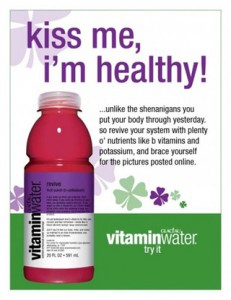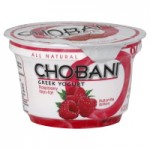Following a busy week in litigation circles, a break in a pair of cases unrelated to the beverage industry might offer a glimmer of hope for brands in several ongoing food and beverage court battles. But labeling remains a flashpoint for dozens of civil suits across the country, with attorneys continuing to parse labels for any potential ingredients or marketing statements that might allow some leverage against FDA guidelines.
According to attorneys for Shook, Hardy & Bacon – the same firm helping to defend the Coca-Cola Co. Inc. and Vitaminwater in a class-action suit over false advertising and marketing claims on Vitaminwater labels – a federal court in California dismissed several claims that Chobani yogurt had mislabeled its products as all-natural and that another company, Wholesoy & Co., had misled consumers over its use of “organic evaporated cane juice” as an ingredient because the Food and Drug Administration itself had not set a “’legally enforceable’ standard” over the use of that ingredient.
Evaporated cane juice is a popular beverage ingredient and has been cited during the high-profile Vitaminwater suit as one of the ways in which the beverage maker allegedly misled consumers into believing the product was healthy.

The yogurt rulings came during a mixed week of results for the plaintiffs in the Vitaminwater suit itself. While a magistrate judge in the U.S. District Court for the Eastern District of New York certified the suit as a class action, he also ruled out financial damages for that class, allowing the suit to go forward only for declaratory and injunctive relief.
That ruling puts Coke, which famously bought Vitaminwater for more than $4 billion in 2007, in something of a bind. While the loss of potential damage penalties puts a low ceiling on the financial gain for the certified class during a trial — and often leads to a quick settlement — in this case it likely won’t be enough to satisfy the co-counsel on the case, the Center for Science in the Public Interest (CSPI), which has doggedly pursued Vitaminwater for years over what it claims is a highly misleading marketing scheme.
Indeed, the ultimate win for the CSPI in the case – the possibility that Coke could even be forced to change the name “Vitaminwater” – remains a possibility. U.S. District Court Judge John Gleeson left that door open when he allowed the case to go forward in 2010 over the objections of Coke. At the time, Gleeson wrote that the names of the drinks and other label statements “have the potential to reinforce a consumer’s mistaken belief that the product is comprised of only vitamins and water,” regardless of what is listed on the ingredient panel.
Even tougher for Coke is that big beverage companies capitulated in a pair of similar cases last week, with PepsiCo agreeing to settle a class action for $9 million and take the words “all-natural” off its label, and Dr Pepper Snapple Group agreed to a settlement that it no longer fortify 7Up with vitamins – or use label claims that some of its 7Up flavors have antioxidants. Both of those cases were taking place in the U.S. District Court in the Central District of California, although they were consolidated class actions similar to the Vitaminwater case.
Coke put its best face forward following the magistrate’s ruling, saying it was pleased the recommendation had gone against damage awards and that it was confident the rest of the case would eventually be dismissed.
Prochnow told BevNET that “whenever you get a ruling from a judge that says there’s no damages involved, that’s a pretty good case for the defendant. Sure, there might be some amount from attorney’s fees, but if you already know they’re not going to get damages from it, that’s a pretty big win in the case.” But, he added, having the potential for the loss of the Vitaminwater name as potential for injunctive relief remains a high-value wild card in the case.
CSPI language on Vitaminwater has been strong: the company has called the product a “junk food” and referred to it as a non-carbonated soda. Both are product types that are not allowed to be fortified with vitamins under FDA policy, according to the CSPI.
“The marketing of Vitaminwater will go down in history as one of the boldest and brashest attempts ever to affix a healthy halo to what is essentially a junk food, a non-carbonated soda,” said CSPI executive director Michael F. Jacobson in a release that followed the ruling. “Vitaminwater, like Coca-Cola itself, promotes weight gain, obesity, diabetes, heart disease, and cannot deliver on any of the dishonest claims it has made over the years.”
The beverage suits, which have hinged largely on the involvement of CSPI as a co-counsel, stand in some respects as a contrast to many food and beverage cases – and indicate a pattern that is starting to get some notice in legal circles.
Free enterprise advocate Glenn Lammi, the chief counsel of the right-leaning Washington Legal Foundation, blamed a consortium of lawyers targeting the U.S. District Court in the Northern District of California – where both the Chobani and Wholesoy cases are being litigated — for a series of cases exploiting consumer protection laws. According to Lammi, the consortium has targeted that district as the base of its lawsuits because it is the most friendly venue for class-action suits related to consumer protection laws and labeling regulations covered by the FDA.
According to Lammi, these kinds of suits – which often deal with the issue of whether products are labeled as “all-natural” or healthy – are “an appealing, Erin Brockovich-like conception of litigation, but is quite far from reality with regards to why scores of class action lawsuits are pending” against many food companies. Lammi cited reporting that indicated a pair of plaintiffs’ attorneys who have made money suing tobacco companies and commercial airlines worked with a former FDA advisors (some of which have worked, it has been argued, on behalf of the food companies themselves) to help them file suits against the food companies.

Of late, Chobani has taken to the offensive, winning its partial dismissal and also pointing out that the plaintiffs in its case are represented by a set of attorneys it calls the “Barrett/Pratt Group” who are also suing more than 30 other companies in the same federal jurisdiction, over very similar branding claims.
Beverage and beverage-related companies in the group of claims include Odwalla, Hain Celestial, Nestle, Welch’s, Ocean Spray, Sunsweet, and others.
The attorneys in the cases justify their claims on the basis of public health – and that breaches of FDA regulation may be the best way to get at the companies and threaten them with being put on the stand.
As the cases proceed on opposite sides of the country, chances are the CPG firms, the “Consortium,” and the CSPI will be watching each other closely, looking for any tool they can use in the fight.